Poll: Cancel the marching band
Most Minnesotans disapprove of the Walz/DFL legislative agenda.
With Gov. Tim Walz and DFL legislators patting themselves on the back, taking exuberant selfies, and firing up the marching band, most Minnesotans in the latest Thinking Minnesota Poll told pollsters they are not on board with their so-called “transformative” agenda. Fifty- nine percent of Minnesotans rated the work of the legislature as “only fair” or “poor.” This is an astonishingly large number considering the amount of positive coverage the 2023 legislative session received from a fawning press. The fact that the poll was taken just as the session was ending makes it even more astonishing.
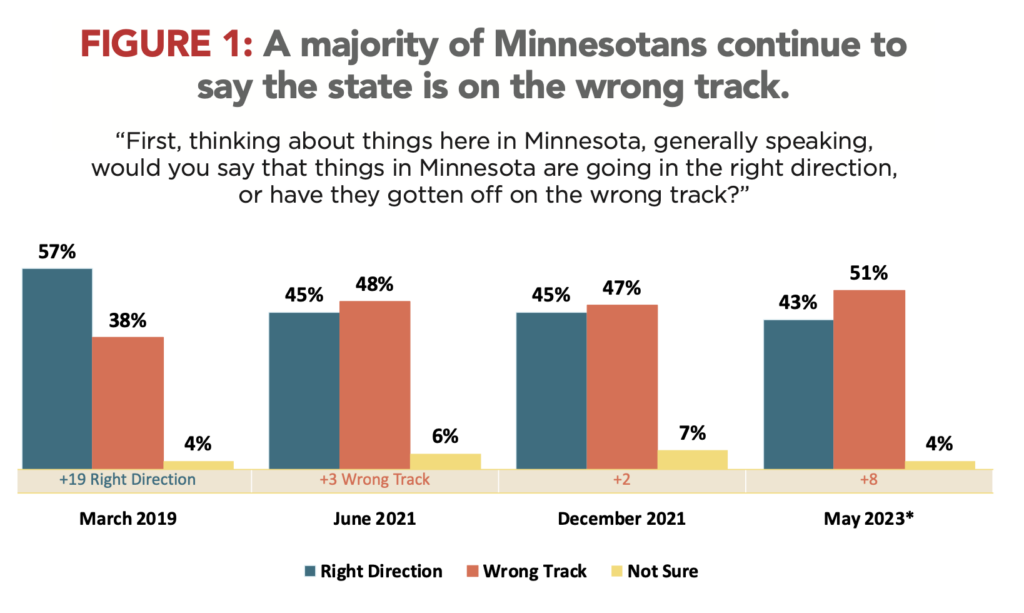
Minnesotans’ displeasure with the legislature clearly influenced the fact that 51 percent told us the state is now on the wrong track, with only 43 percent saying it’s on the right track. This is the first time in the Walz era that most Minnesotans believe the state is on the wrong track. In March 2019, 57 percent of Minnesotans believed the state was on the right track.
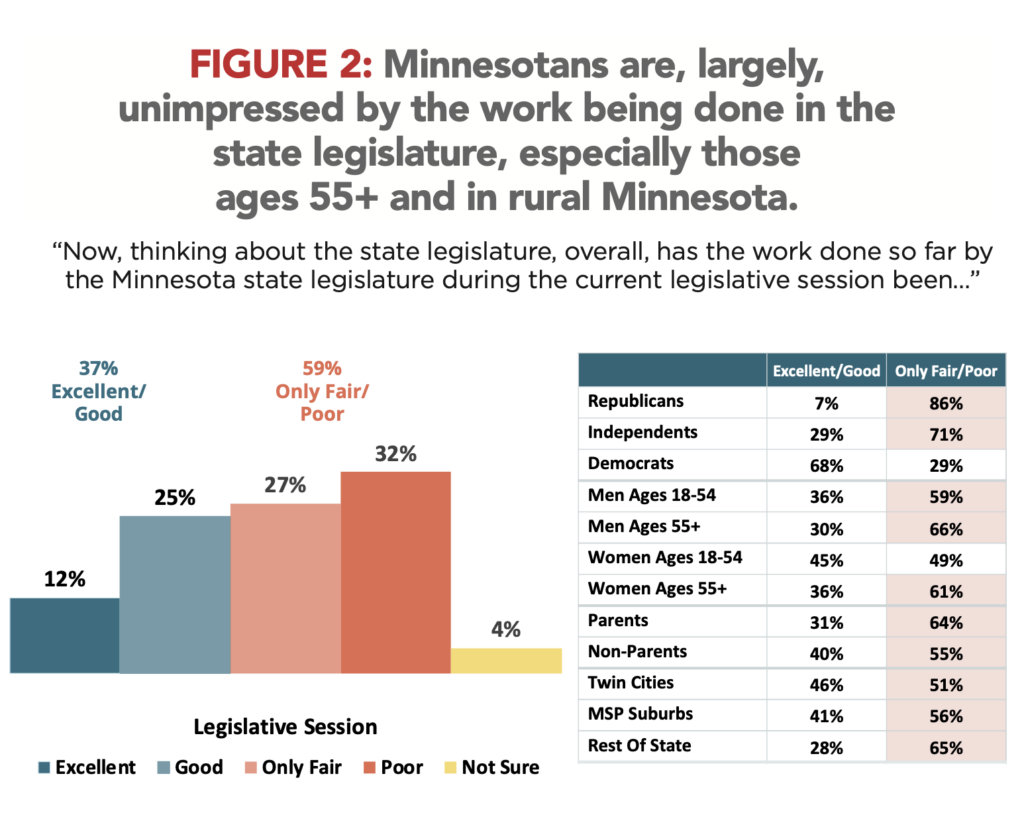
This recent poll was conducted during the last days of the legislative session by Meeting Street Insights, a nationally recognized polling operation based in Charleston, S.C. Using a mix of cell phones and landline phones, the company interviewed 500 registered voters across Minnesota from May 21-23, 2023. The margin of error is +-4.38 percent.
“After all the positive coverage of the Democrats’ legislative agenda, it’s shocking to see more than half the state thinks we’re on the wrong track,” said John Hinderaker, president of Center of the American Experiment.
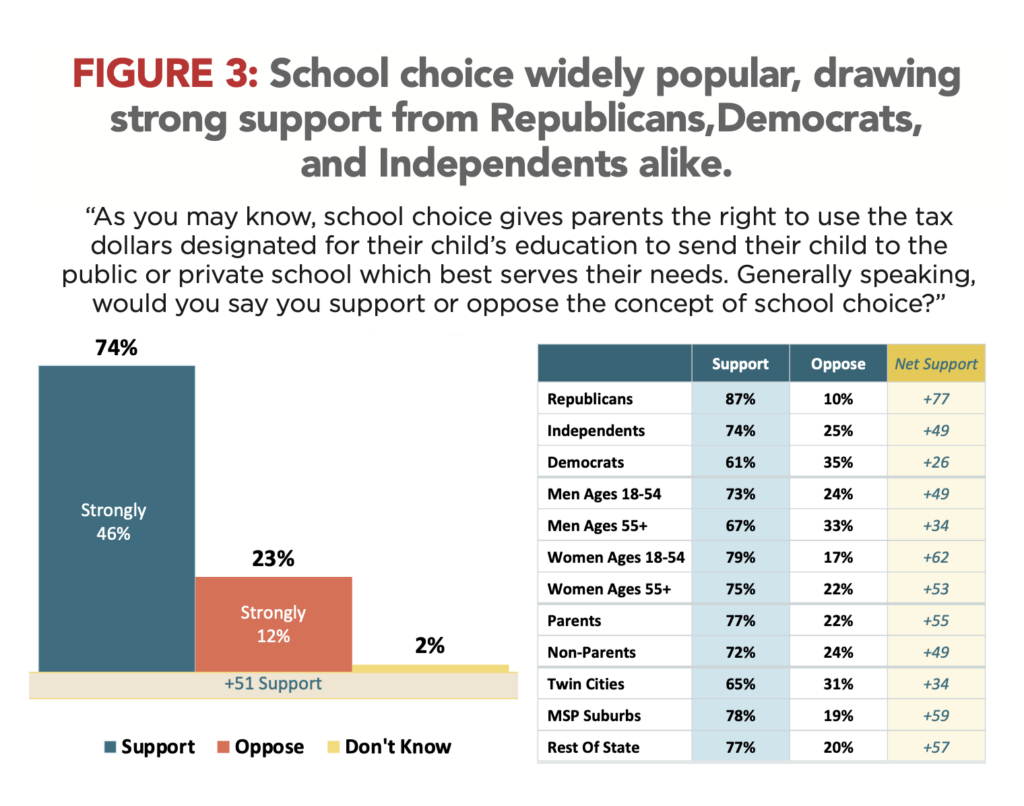
The legislative approval numbers track with earlier Thinking Minnesota polling that showed little support for many of the marquee items on the Democrats’ 2023 agenda. Raising the sales tax in the metro area to pay for transit projects is opposed by 58 percent of Minnesotans. Adding a fee on all retail deliveries such as those from Amazon, Fed-Ex, or Door Dash is opposed by 72 percent of Minnesotans. Raising the fee for car tabs is opposed by 81 percent of Minnesotans. Sex-change operations for minors are opposed by 67 percent of Minnesotans. Restoring the right to vote for convicted felons before they serve their full sentences is opposed by 60 percent of Minnesotans. Creating a new payroll tax to pay for a state-run paid family leave program is opposed by 50 percent of Minnesotans.
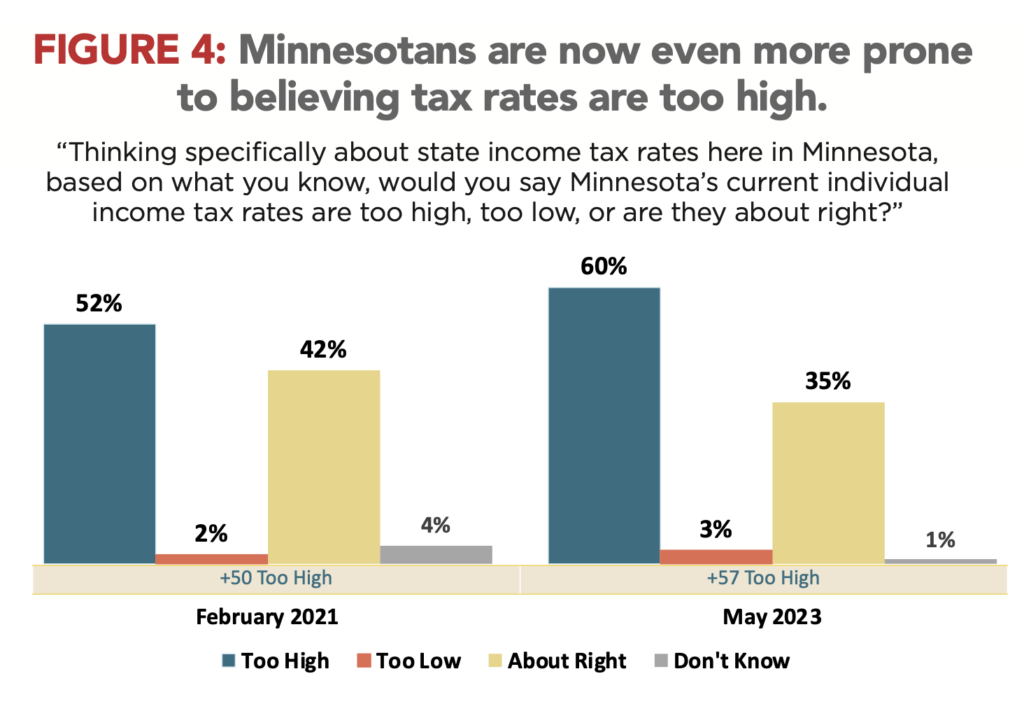
In addition to voicing concern over what did pass, poll respondents also weighed in on issues the legislature did not address, beginning with school choice. A strong majority (74 percent) favor a school choice policy where parents can use tax dollars to send their child to a public or private school that best serves their needs. Even 61 percent of Democrats supported school choice, though no elected Democrat would dare cross the teachers’ union and support this reform.
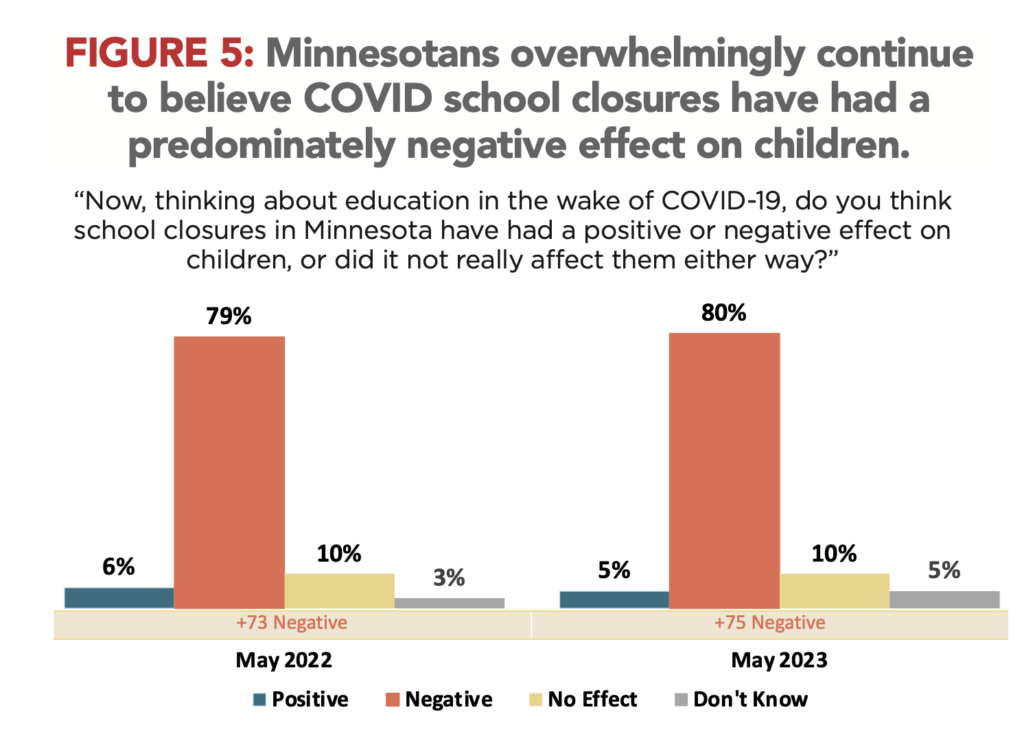
Minnesotans also overwhelmingly (80 percent) believe that school closures caused by our overreaction to COVID-19 had a negative effect on children. There has been no movement on this question since we asked it one year ago, and it is unlikely to change in the future.
Minnesotans have also made up their minds about crime and public safety. In our current poll, 77 percent of respondents are personally concerned about the level of crime in Minnesota, a very high number and consistent with the last two times we asked this question in June 2021 (81 percent) and December 2021 (86 percent). It’s a sad state of affairs in Minnesota when residents are resigned to the fact that high crime is now a way of life.
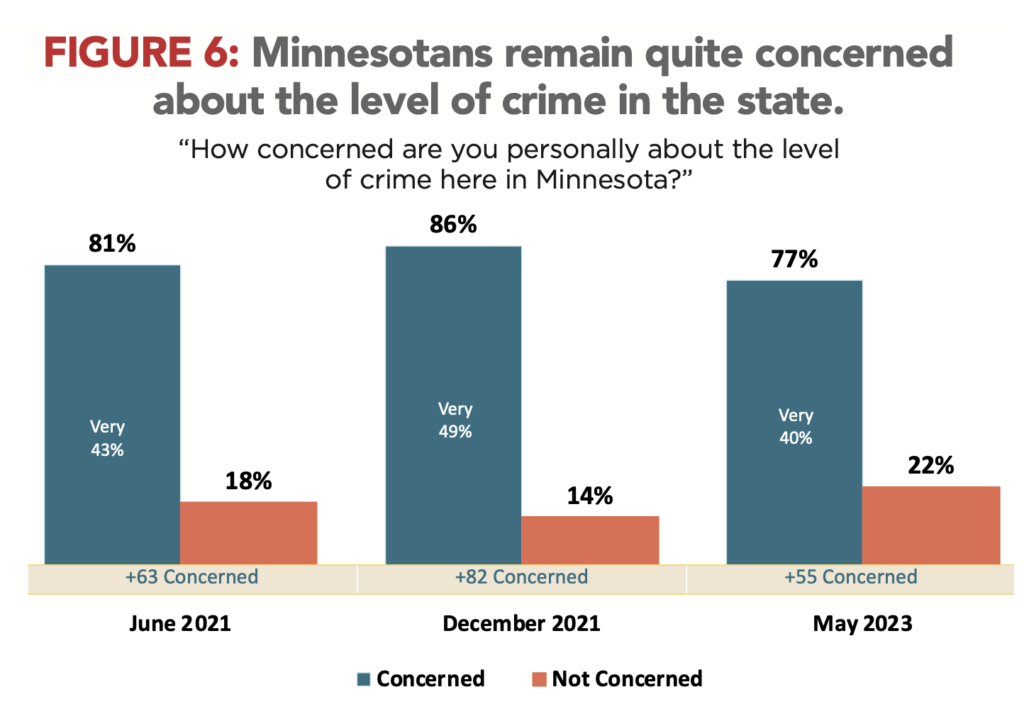
While Walz and the Democratic majorities in the legislature spent the entire surplus and raised taxes an additional $9 billion over the next four years, 60 percent of poll respondents said that income tax rates in Minnesota are too high, an increase of eight percent since we asked the question in February 2021. Only three percent said taxes were too low.
“On taxes, the leaders in St. Paul listened to the three percent who think taxes are too low,” added Hinderaker. “On education, Democrats continue to ignore the most effective, and now most popular, reform yet to be tried in Minnesota: real school choice.”
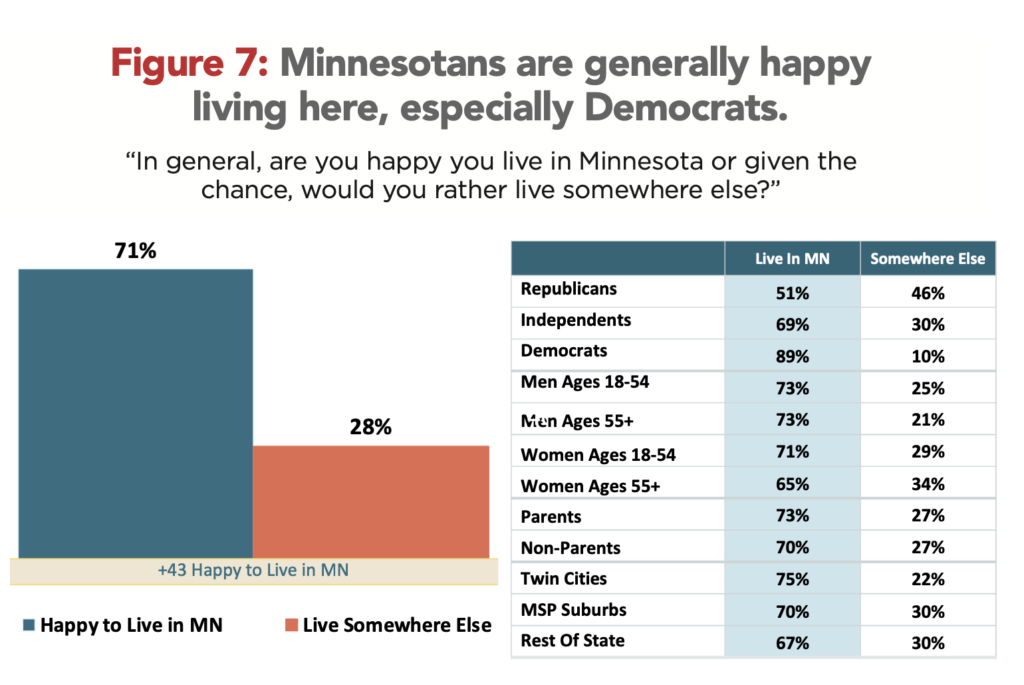
With all the talk of Minnesotans leaving the state because of questions about their attitudes and beliefs about the state.
Generally speaking, Minnesotans told us they are happy with the state, with 71 percent saying they would rather live here than somewhere else if given the chance to move. As with many things in Minnesota, this question divided people by party, with Democrats (89 percent) much happier with the state than Republicans (51 percent). Would that change if the government was controlled by the other party?
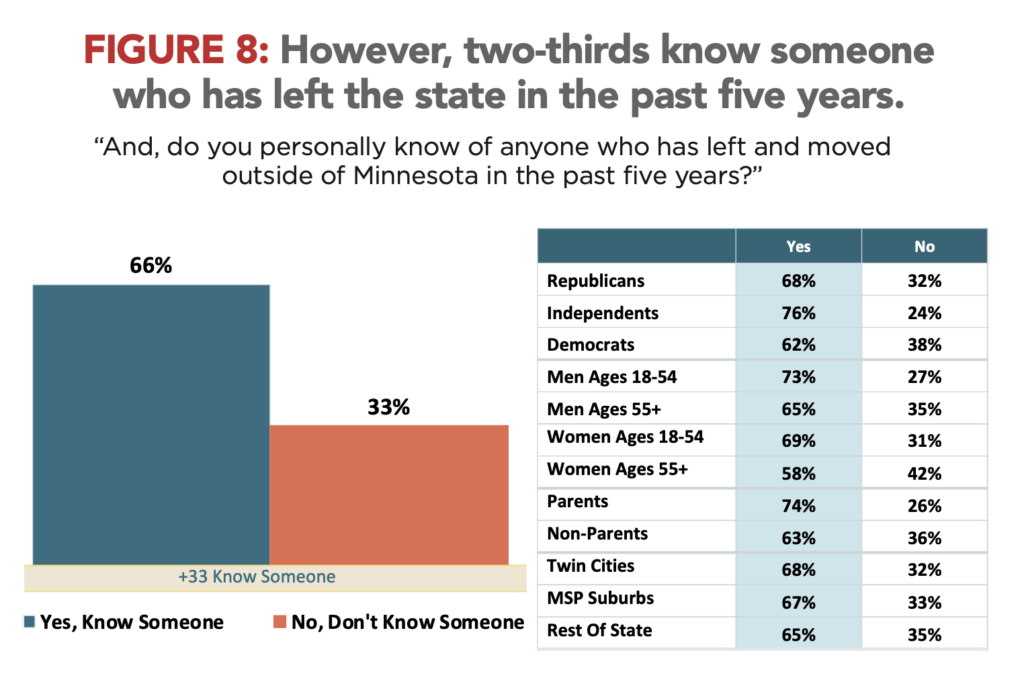
Digging a little deeper gets us past that famous Minnesota homerism and reveals that 6-in-10 respondents think their children are likely to move outside of the state of Minnesota. So, the state is great for us, but our kids are likely to leave.
Pessimism regarding the prospects of the next generation is a sober and honest concern for policymakers as they come to grips with two troubling trends. First, economic growth in Minnesota has lagged the national average every year since 2014. Second, Minnesota is now a net loser to intrastate migration, losing 19,400 people to other states last year. Worse, Minnesota lost residents in every single age category; it is not limited to retirees looking for warmer climates or young people heading off to college.
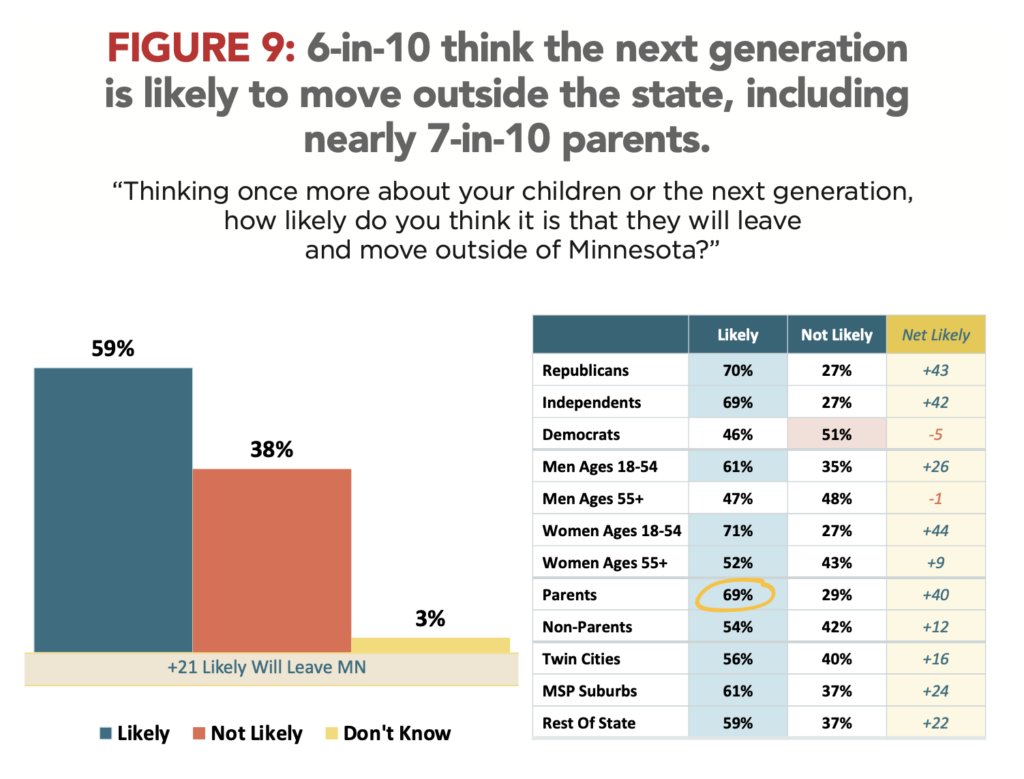
The 2023 legislative session may go down in history as the “selfie session,” with Walz and key legislators congratulating themselves on their policy wins with giddy social media posts, raucous bill signing ceremonies complete with marching bands, and orchestrated drone videos. But the data in the last two Thinking Minnesota polls shows most of the public is not buying what they are selling. Before they return to St. Paul in February, legislative leaders and the governor need to spend more time with average Minnesotans to ensure the celebrations match the public’s mood — before they all leave the state.
About the pollster
Rob Autry, founder of Meeting Street Insights, is one of the nation’s leading pollsters and research strategists.